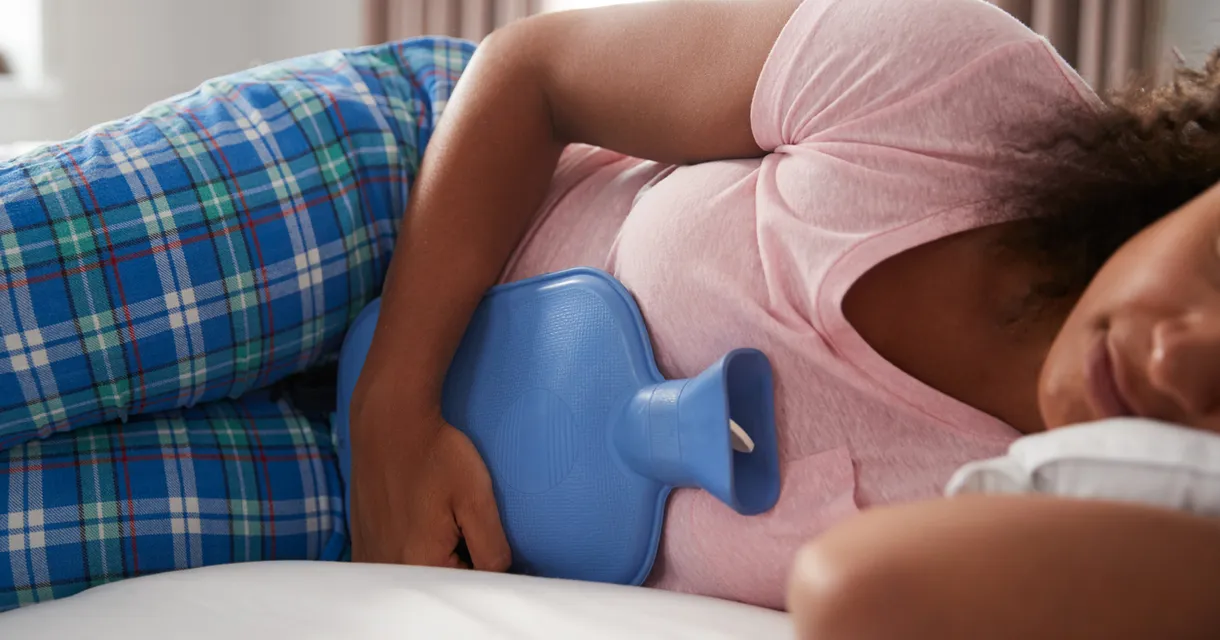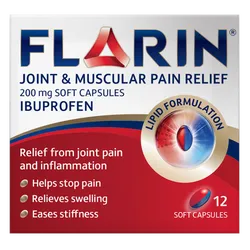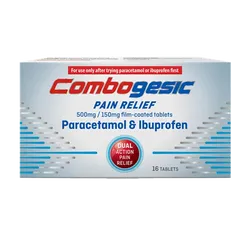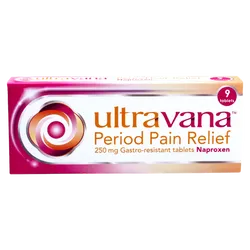The menstrual cycle stages
‘The menstrual cycle’ refers to the time from the first day of a period to the day before the next period. On average periods happen every 28 days, but they can range from 21 to 40 days, which is also normal.
Stage 1
The first stage of the menstrual cycle is called menstruation, more commonly known as your period. Menstruation is the shedding of the womb’s lining. Menstrual fluid contains blood cells from the lining of the uterus (endometrial cells) and mucus.
Periods tend to last between 3 days and 1 week. Sanitary products are used to absorb the menstrual flow. They need to be changed about every 4 hours. You can find our range of sanitary pads and tampons here.
Stage 2
A follicle stimulating hormone prompts the ovary to produce around five to 20 follicles, with each one housing an immature egg.
Usually, only one follicle will mature into an egg, while the others die. The growth of the follicles stimulates the lining of the uterus to thicken in preparation for possible pregnancy.
Stage 3
During ovulation, the hormone progesterone helps the womb to prepare for implantation of a developing embryo. The egg travels down the fallopian tubes and if pregnancy doesn't occur, the egg is reabsorbed into the body. Levels of oestrogen and progesterone fall, and the womb lining comes away and leaves the body as a period.
The time from the release of an egg to the start of a period is around 10 to 16 days. Ovulation is generally when people are the most fertile, so people trying for a baby tend to aim for this time.
However, as pregnancy isn’t always wanted, there is hormonal contraception, such as the combined pill, the contraceptive patch and the contraceptive injection, which work by stopping ovulation, to reduce the likelihood of pregnancy. It is important to note that no method of contraception other than abstinence is 100% effective. Speak to your GP about which method of contraception is right for you and always read the information leaflet before taking it.
Step 4
During ovulation, the egg bursts from its follicle, which stays on the surface of the ovary. For the next two weeks or so, the follicle transforms into a structure known as the corpus luteum.
Corpus luteum starts releasing progesterone, along with small amounts of oestrogen. This combination of hormones maintains the thickened lining of the uterus, waiting for a fertilised egg to stick.
If a fertilised egg implants in the lining of the uterus, it produces the hormones that are necessary to maintain the corpus luteum. This also includes HCG, which is detected in a urine test for pregnancy. You can find our range of pregnancy and ovulation tests here.
If pregnancy does not happen, the corpus luteum dies, usually around day 22 in a 28-day cycle. The uterus lining falls away and thus starts menuatration. The cycle repeats.
Why might periods stop?
There are a number of reasons why your periods may stop. The most common reasons are:
- Pregnancy
- Stress
- Sudden weight loss
- Being overweight
- Doing too much exercise
- Taking the contraceptive pill
- The menopause
- Polycystic ovary syndrome
Period Symptoms
Period symptoms can occur when you are due to start your period. This is commonly known as PMS, or Premenstrual Syndrome. It is when the hormones that control your menstrual cycle cause changes in your body and emotions around the time of your period.
Period pain happens when the muscular wall of the womb tightens. During your period, the wall of the womb starts to contract more vigorously to help the womb lining shed as part of your period.
Period pain usually starts when your bleeding begins, although some women have pain several days before the start of their period.
The pain usually lasts 48 to 72 hours, although it can last longer. It's usually at its worst when your bleeding is heaviest.
Some common symptoms of PMS are:
- Feeling upset, anxious or irritable
- Bloating
- Breakouts on the skin
- Breast tenderness
- Feeling tired
- Mood swings
- Period Pain caused by other factors
Period pain can also be caused by underlying medical conditions, though less common. This tends to affect older women aged 30 to 45.
As well as this, period pain can also be caused by contraceptive devices, such as an intrauterine device (IUD). This is a type of contraception made from copper and plastic that fits inside the womb. It can also sometimes cause period pain, particularly during the first few months after it's inserted.
You may notice a change in your normal pattern of pain if your period pain is linked to a medical condition or a contraceptive IUD. For example, the pain may be more severe or it may last much longer than normal.
Period Pain Management
To help ease the pain, you can try our period pain relief products, which tackle symptoms in a variety of ways, including tablets and heat patches. You can also take paracetamol to help manage pain.
Other activities thought to ease period pain include:
- Exercise – you may not feel like exercising during a painful period, but being active may reduce pain; try some gentle swimming or walking.
- Heat – putting a heat pad or hot water bottle (wrapped in a tea towel) on your tummy may help reduce pain.
- Warm bath or shower – taking a warm bath or shower can relieve pain and help you relax.
- Massage – light, circular massage around your lower abdomen may also help reduce pain.
- Relaxation techniques – relaxing activities such as yoga or pilates may help distract you from feelings of pain and discomfort.
See your GP if you have severe period pain or your normal pattern of periods changes, for example, if your periods become heavier than usual or irregular.
Pop into one of our pharmacy branches near you if you would like to know more about what period pain products could help ease your symptoms. Our team of pharmacists are always happy to help.
Sources
https://www.nhs.uk/conditions/periods/
https://www.nhs.uk/conditions/period-pain/
https://www.nhs.uk/conditions/periods/delayed-periods/
https://www.nhs.uk/conditions/stopped-or-missed-periods/
https://www.nhs.uk/conditions/periods/fertility-in-the-menstrual-cycle/



